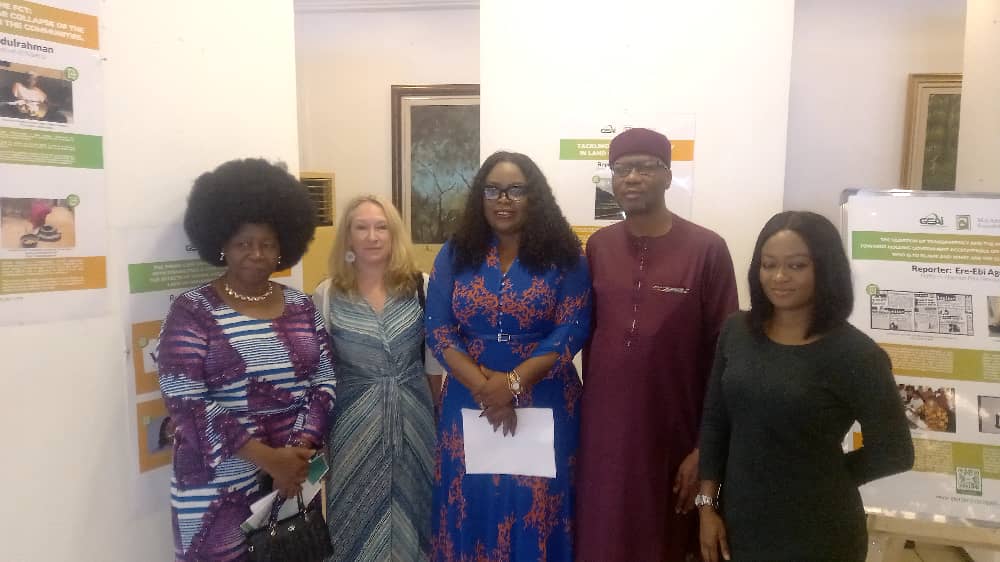Media urged to adopt inclusive storytelling for gender equity, accountability
Journalists have been urged to use inclusive storytelling in promoting gender equity and holding those in power accountable. Adaora Onyechere Sydney-Jack, Executive Director, Gender Strategy Advancement International (GSAI), made the appeal Wednesday in Abuja during a Story Circle Exhibition, themed, “Gender The Agenda.” Sydney-Jack said inclusive storytelling enables journalists to better represent the experiences and […]

adaora
Journalists have been urged to use inclusive storytelling in promoting gender equity and holding those in power accountable.
Adaora Onyechere Sydney-Jack, Executive Director, Gender Strategy Advancement International (GSAI), made the appeal Wednesday in Abuja during a Story Circle Exhibition, themed, “Gender The Agenda.”
Sydney-Jack said inclusive storytelling enables journalists to better represent the experiences and challenges of marginalized groups, particularly women and persons with disabilities.
According to her, by incorporating a wider range of voices and perspectives, journalism can become a more powerful tool for advocacy, fostering greater understanding and advancing equity in society.
She said: “The Power of Inclusive storytelling is at the center of investigative journalism and the core of an equitable future. One of the most potent aspects of storytelling in journalism is that it has the ability to humanize complex issues.
“Inclusive storytelling is not just a tool; it is the beating heart that brings news and reports to life. While facts and figures provide the foundation, it is through storytelling that journalists connect with their audience on a deeper level, evoking emotions, inspiring action, and driving meaningful change. The power of storytelling in journalism cannot be overstated, as it bridges the gap between information and impact, making stories resonate long after they are read or heard. storytelling is not just a tool; it is the beating heart that brings news to life.
“Furthermore, Inclusive storytelling in journalism has the power to inspire action and drive change. By highlighting stories of courage, perseverance, innovation, journalists can motivate individuals and communities to take positive steps towards addressing challenges and creating a better future.
“Whether it’s a grassroots movement sparked by an inspiring story or a policy change driven by public awareness, or institutional reforms enabled by the demand for accountability, storytelling plays a pivotal role in driving social and political progress.”
Kole Shettima, Director, MacArthur Foundation, stated that journalism is not just about making profits, especially when it comes to investigative work.
He said, “Many newspapers and media outlets are struggling because they lack the resources for editorial independence. That’s why it’s crucial to support journalists in producing independent work.”
Motunrayo Alaka, executive director of the Wole Soyinka Center for Investigative Journalism, who was represented by broadcast journalist, Kimberly Nwachukwu, underscored the importance of the Collaborative Media Engagement for Development Inclusivity and Accountability (CMEDIA) project, led by WSCIJ with support from the MacArthur Foundation.
She said the project aims to create an ecosystem where transparency, accountability, and good governance thrive at all levels of government, particularly at the state and local levels.
“With 26 direct media partners and countless other organizations involved, the project has made significant strides in amplifying the voices of the marginalized.
“The CMEDIA project has been a catalyst in amplifying marginalized voices, including those of women, youth, persons with disabilities, and those in remote communities,” she noted.
